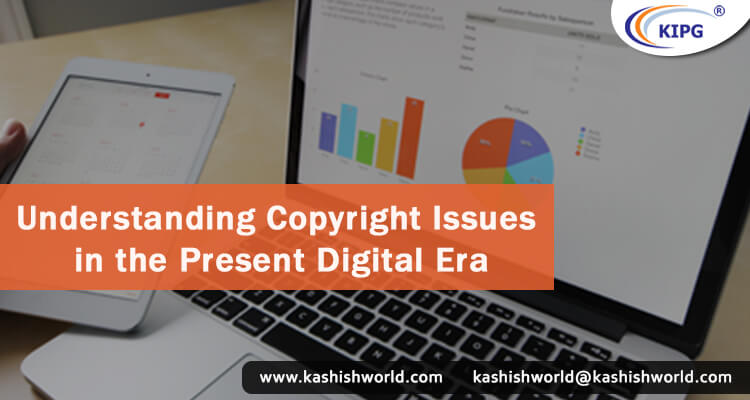
Without any second thoughts, the advancement of digital technology is one of the finest innovations of the human mind. Technology has indeed opened its doors to a plethora of possibilities in different fields such as education, advertisement, communication, entertainment, media, and so on. However, the ease of access to everything available on the internet today has undoubtedly posed a crucial concern for Copyright Infringement. A copyright is an exclusive form of Intellectual Property (IP), which safeguards the rights possessed by the creators for their artistic and literary works, including films, computer programs, books, paintings, databases, maps, etc. Digitization has made it a lot easier to use, distribute, copy, and sell the original works of the creators without seeking their permission. What is even worse in this scenario is that the detection of such infringement is an exceedingly arduous task.
Internet and Copyright Infringement
The internet has been a prime threat to Copyright Protection for quite a while now. The information available online in the form of news, graphics, stories, images, videos, screenplay, eBooks, and so on, has varying degrees of copyright protection. Moreover, the vast levels of information available on the internet make it extremely difficult to determine whether a specific piece of work is a duplication of the original work or not.
There’s a common misconception nowadays that the information accessed on the internet in the public domain can be copied freely by anyone. However, it is not the case unless and until a specific piece of information has been made available by the government authorities, or the term for copyright protection has expired, or the creator has surrendered his or her right.
Copyright infringement on the Internet can take place on different platforms and in different ways, which are as follows:
1. Downloading Content
The internet has always been a medium of downloading files or software to the hard disk of an individual’s computer system. The process of downloading may revolve around reproducing or creating a copy of the content available on the internet. However, there are indeed a lot of restrictions, which an individual must take into consideration before downloading something to prevent committing an offense.
2. Derivative Works
Two or more programs compiled to create a derivative work subject to copyright infringement or violation.
3. Hot-linking
It refers to displaying an image on a website by linking to the original website hosting that image. The process of hot-linking may violate the rights of a copyright owner.
4. Computer Software
Computer software refers to a collection of programs, documentation, and procedures that perform a variety of tasks on a computer system. Software piracy is a form of copyright infringement as it involves unauthorized copying, distributing, exporting, renting or selling of the copyrighted software.
5. Multimedia
The entire concept of multimedia is way too broad as it consists of multiple categories of material within itself, including sounds, videos, text, images, graphics, live videos of speakers, presentations, and so on.
Copyright infringement in the multimedia environment involves:
- Copying the unique works of the creators without seeking their permission
- Distributing the works for any purpose other than education-related
- Creating unauthorized copies of the original works
- Selling or offering for sale the unique works
6. Social Media Platforms
Social media platforms, at present, have become a prominent mode of connecting with people across the globe. Such platforms involve using and sharing the works that may be copyrighted. The widespread practice of sharing material such as pictures and videos on social media networks has led to an increasing number of copyright infringement cases. The false notion that everything available on social media can be used freely is the root cause of the entire situation. Copyright violations on social media platforms can take place in the following ways:
- Saving, sharing, or re-posting the copyright-protected works
- Claiming ownership of already protected works
- Using the original works of other people without seeking their consen

